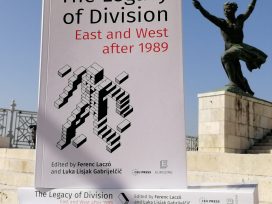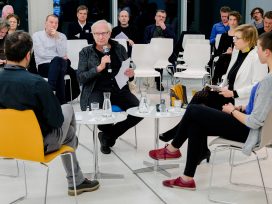
Carnival is a time of cultural exuberance. In the Low Countries, however, the masquerade has become a refuge for dominant groups to caricature the heritage and bodies of others. Where does this propensity come from? And can it be changed?

Carnival is a time of cultural exuberance. In the Low Countries, however, the masquerade has become a refuge for dominant groups to caricature the heritage and bodies of others. Where does this propensity come from? And can it be changed?

Belarus and its people are currently navigating complex processes of democratization. From clashes on the streets to intellectual discourse on political rhetoric and media representation, the official line on Belarusian identity comes under scrutiny.

Despite real and immediate environmental catastrophes, Australia’s climate change policies are the most backward in the world. To be pro-environment is to be seen as un-Australian; coal mining in particular is a source of national pride.

Germany was quick to claim the German-Turkish vaccine developers of Pfizer/BioNTech as proof of its open society. But their success is more an exception than a rule. Rather than congratulate itself, Germany needs to confront how it abandoned the migrants it once invited.

When does political pressure reach its breaking point? As censorship methods get subtler, eastern European journalists rely on the popular support for independent journalism to stand their ground against rampant Orbánization.

Yet another independent outlet is slain in Hungary: Klubrádió just lost its broadcast license, resuming a decade-long campaign to silence the channel. Journalists march on, hoping for a lengthy legal battle to do them justice in the end. They have accommodated pressure, but their defiance comes at a high price.

Radical Islamism benefits from the silence of moderate Muslims who see no reason why their faith implies a responsibility to condemn its violence. But Islamism also stands to gain from the blurring of boundaries between genuine Islamophobia and criticism of Islam where it departs from democratic norms.

What causes the stark generational difference in people’s understanding of Soviet times? Is it only personal nostalgia, or maybe another set of expectations? Why didn’t the lifting of the Iron Curtain bring down the wall between East and West? Kinga Anna Gajda examines the perspectives offered in the Eurozine anthology ‘The Legacy of Division. East and West after 1989’.

The recent souring in Irish attitudes to England stems from dislike of the politics of Brexit, not a reawakening of national hostility. Ireland has been forced to choose, and has chosen Europe. A new sense of its importance in the Union may even ease regrets at losing a major neoliberal ally.

The European Green Deal proposes that art-science collaborations pull us out of environmental crises. But doesn’t invoking an early 20th century movement just reflect modernist shortcomings – the very inequalities a green transition is supposed to redress?

Physical violence and political repression continue to torment Belarusian streets. Ongoing activism incurs a heavy, emotional toll. Could solace and stamina be found in literature, metaphysical reflections on the question of evil?

English is the language that makes communication between speakers of different languages less difficult and more inclusive than any other. With the enlargement process it became the lingua franca of the EU. Brexit will not change this – on the contrary, the UK’s departure is an occasion for Europeans to confidently reclaim a continental hybrid.

From climate change to political corruption and authoritarianism, leaders of protest movements share a common dilemma: how to achieve impact when existing parties and institutions cannot be trusted?

According to AstraZeneca, the EU is demanding preferential treatment in the supply of the coronavirus vaccine. And according to the EU, restrictions on the export of the vaccine are all about accountability. There are reasons to be sceptical about both claims.

Masturbation became an important medical and moral issue around 1712, Thomas Laqueur argues. Increasingly viewed by Enlightenment thinkers as a pathology of the solitude of an unmoored mind, the private practice was quickly linked with feelings of shame and guilt, with implications for self and society that would last for centuries.

The film of Putin’s Palace is above all a story of monumental corruption. Yet it is also a story about the Russian leader’s warped historical imagination. Despite the residence’s imperial pretensions, its secrecy speaks volumes about the cultural chasm between Putin and the Romanovs.